Three Life-shaping Lessons I Learnt from B.B.King
by Mark Montgomery
The music of B.B.King has been part of the sound track of my life for close to 50 years. Dad inducted me into an Alice in Wonderland world of eccentrically named Jazz Giants and Blues Beasts. He name–dropped, with knowledge and affection, the likes of Blind Lemon Jefferson, Jelly Roll Morten, T–Bone Walker, Lead Belly, Muddy Waters, Lightin’ Slim, Big Bill Broonzy, Bo Diddley and Barbecue Bob.
They sounded so delightfully otherworldly. I would not have batted an eyelid if he had said “Have you heard The Mad Hatter on the sax or Cheshire Cat on the bass?” I was perhaps 10 years old. The Beatles were big. The Stones were…well…stoned. Elvis demonstrated that he had a pelvis. They didn’t really Rock Me. I was already halfway down the slippery slope of a life–long addiction to Jazz and the Blues. Many have tried to rescue me from this musical obsession. So far, I have managed to fight them off successfully. In this vast forest of towering Mississippi Delta sound–smiths, one distinctive sound pierced through the dense din. Just two notes from the whining, weeping Lucille1 would scream the name of its author. It could be none other than B.B.King.
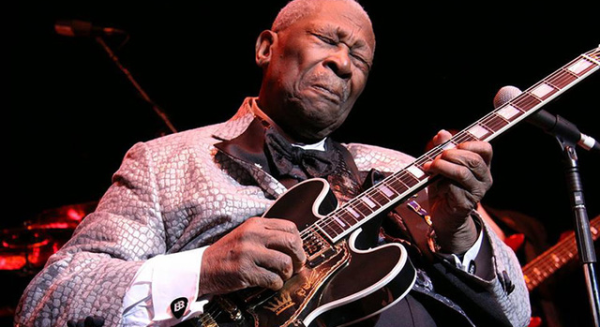
(Courtesy/BB king/Facebook)



(Courtesy/BB king/Facebook)
Now, close to half a century later, I realise that you only miss the water when the well runs dry. The passing of B.B.King was no surprise. He had lived a long and raucous life from his early youth. He was a few months shy of turning 90. He had been suffering with diabetes for many years. Still, I had a sharp intake of breath and a sudden sadness when I learnt that he was no longer with us. Over the past few days I have identified three life–shaping lessons that I have learnt from B.B.King.
1. Your Attitude Will Determine Your Altitude
Riley B King was born on Berclair, a cotton plantation of flagrant insignificance to all but those who eked out a living from its soil. His parents were tenant farmers. They paid for their use of the land by giving the landowner an agreed percentage of their crop. Fate would have been forgiven if B.B.King had followed in their footsteps and then evaporated into eternal obscurity. Instead, Fate dealt him a Joker. His mother left the family when Riley was 4 years old. He was raised by his grandmother.
Elenora Farr, his grandmother, took him to church. Riley discovered Gospel. He discovered his passion and talent for music.
I grew up in South Africa, in the dark days of Apartheid. I was born on the “wrong” side of the colour divide. The then government degreed that people of colour were inferior to “white” skinned South Africans. Legislation and civil life were constructed and contrived to cement this perception across the board. In my formative years, I recognised that B.B.King had every excuse for failure handed to him on a silver platter. He knew exactly what he wanted. Failure was not on his menu. He started with a positive, focused mental attitude. He maintained a positive, focused mental attitude. He kept his eye on his objectives and he didn’t blink. His attitude determined his altitude. Lesson learnt.
2. Find Something You Like Doing So Much You Would Do It For Free
Driving a tractor from dawn to dusk under the blistering Mississippi Delta sun was considered a very good job. Riley B. King endured this job for a while when he lived with his grandmother in Kilmichael, Mississippi. It paid the bills. It was steady, predictable, respectable, employment. But it wasn’t his dream. He was a self–taught blues guitarist. His ambition – to play the Blues to the best of his ability – and then to do it even better.
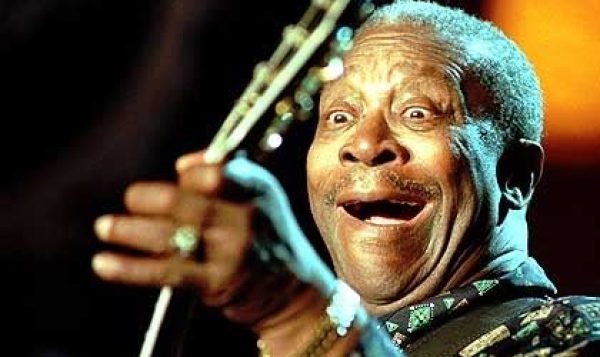

(Courtesy/BB king/Facebook)


(Courtesy/BB king/Facebook)
There was a price to pay. There were risks to take. He paid the price. He took the risks. He left safe jobs to pursue the dream. The dream was personal and it was public. He sang and played the Blues for himself. He played and sang the Blues for those who went before. Many years later he would confide to us “Why I Sing the Blues“.
“When I first got the blues
They brought me over on a ship
Men were standing over me
And a lot more with a whip
And everybody wanna know
Why I sing the blues“
He paid the price. He took the risks. He acknowledged:
“I’ve laid in a ghetto flat
Cold and numb
I heard the rats tell the bedbugs
To give the roaches some
Everybody wanna know
Why I’m singing the blues
Yes, I’ve been around a long time
People, I’ve paid my dues”
If I had a dollar for every time I hear someone say “When I left school my dream was…” or “What I really want to do is XYZ…but I am stuck in my job” I would not have to write for a living. But I would still choose to do so! This is what I want to do. I want to write. It may not be the loftiest of objectives – but it is MY objective. I want to write. So, I write. B.B.King had a dream but he was not a dreamer. He took the good and the bad along the way to do and live what he loved.
“I’ve really, really paid my dues
You know I ain’t ashamed of it, people
I just love to sing my blues”
Find something you love to do so much that you would do it for free. Then learn to do it so well that people pay you to do it. Lesson learnt.
3. There Are No Small People
I heard B.B.King play at Le Forum (Liege, Belgium) about 15 years ago. He was old already then. He was helped to a chair on stage.
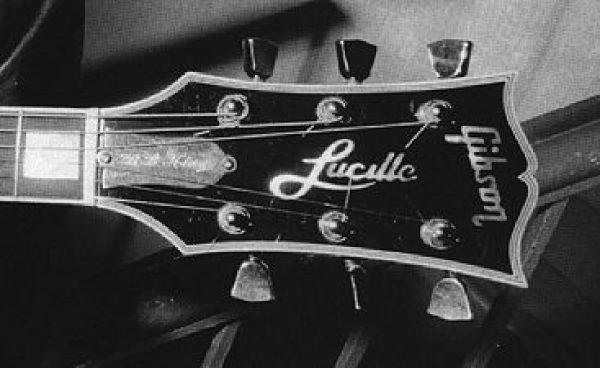

(Courtesy/BB king/Facebook)
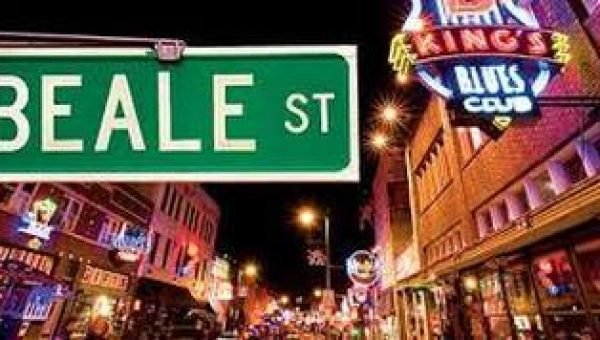

(Courtesy/BB king/Facebook)
He played sitting down. Le Forum is a fabulous venue – for Liege. This 2000 seat hall does not compare with the 18,200 seats of The Garden. Still, the King treated us as though WE were royalty. This was an unforgettable performance – but not only for the music.
After numerous encores the King of the Blues laboriously pushed himself to his feet. He lumbered off towards the wings. A boy, about 11 years old, approached the stage, guitar in hand. Before he could get to the top of the stage stairs, the minders slammed together like elevator doors crashing shut. Access to The King was blocked. B.B.King, almost off–stage now, saw this impromptu battle line form from the corner of his eye. He stopped, turned and shuffled to where the boy was standing. He waved the elevator doors aside. He scribbled his signature across the boy’s guitar.
Job done, the Maestro bowed to the audience. A door creaked open. A rosy cheeked urchin poked his head through the off–stage side door. His happy face aglow with sweat from pumping the organ bellows as if his life depended on it. “Didn’t we do well!” the Maestro heard him say through the thunder of the applause.
“We? Who is we?” He stormed off the stage.
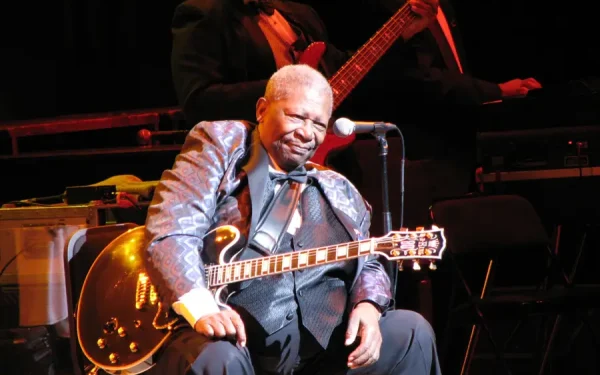

(Courtesy/BB king/Facebook)
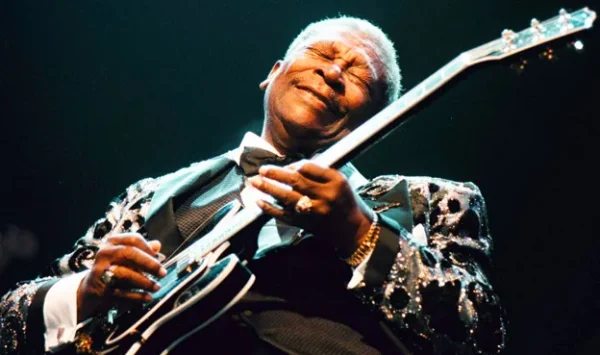

(Courtesy/BB king/Facebook)
A door creaked open. A rosy cheeked urchin poked his head through the off–stage side door. He looked the Maestro straight in the eye and said “…and who is we now?“

